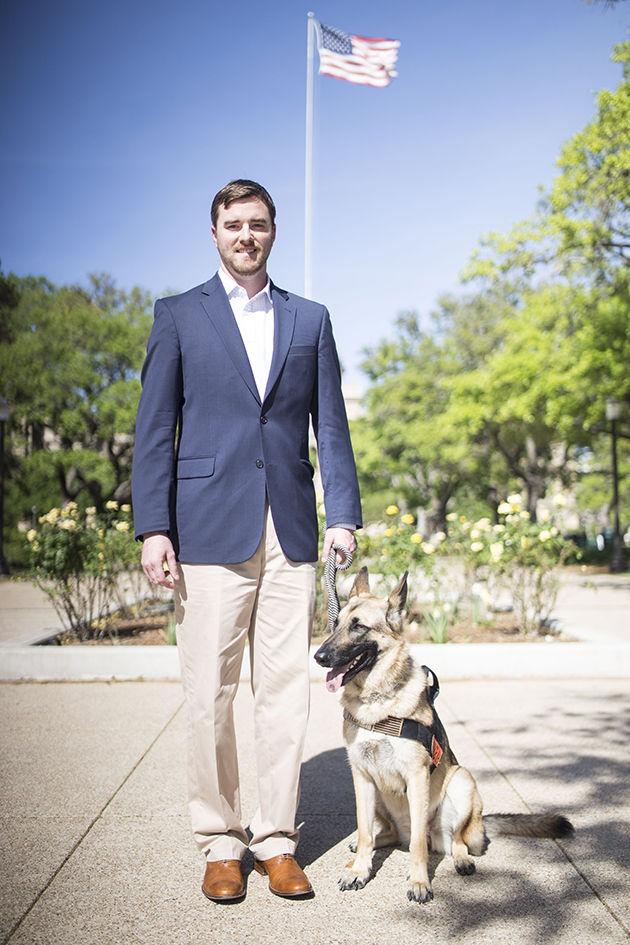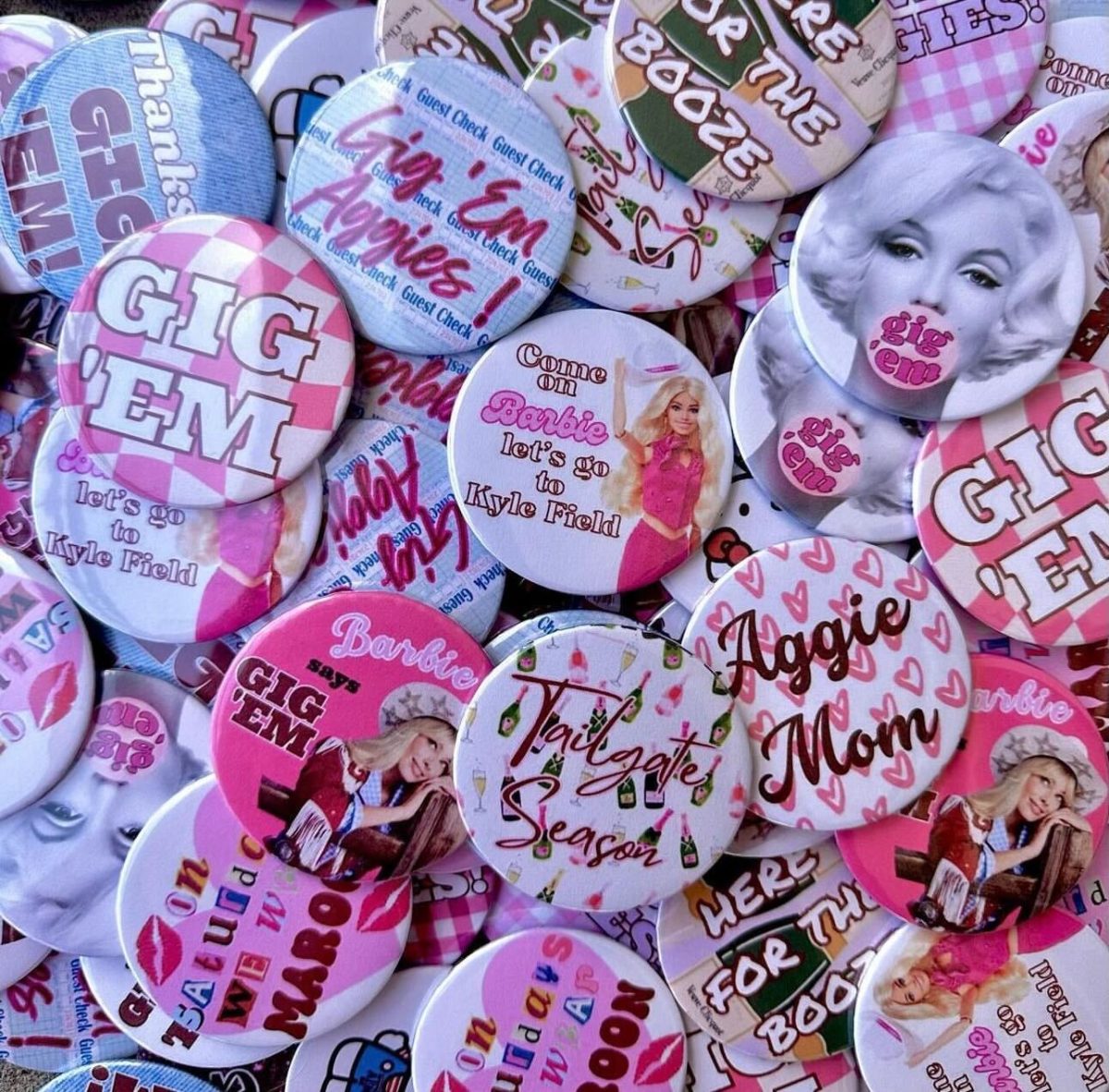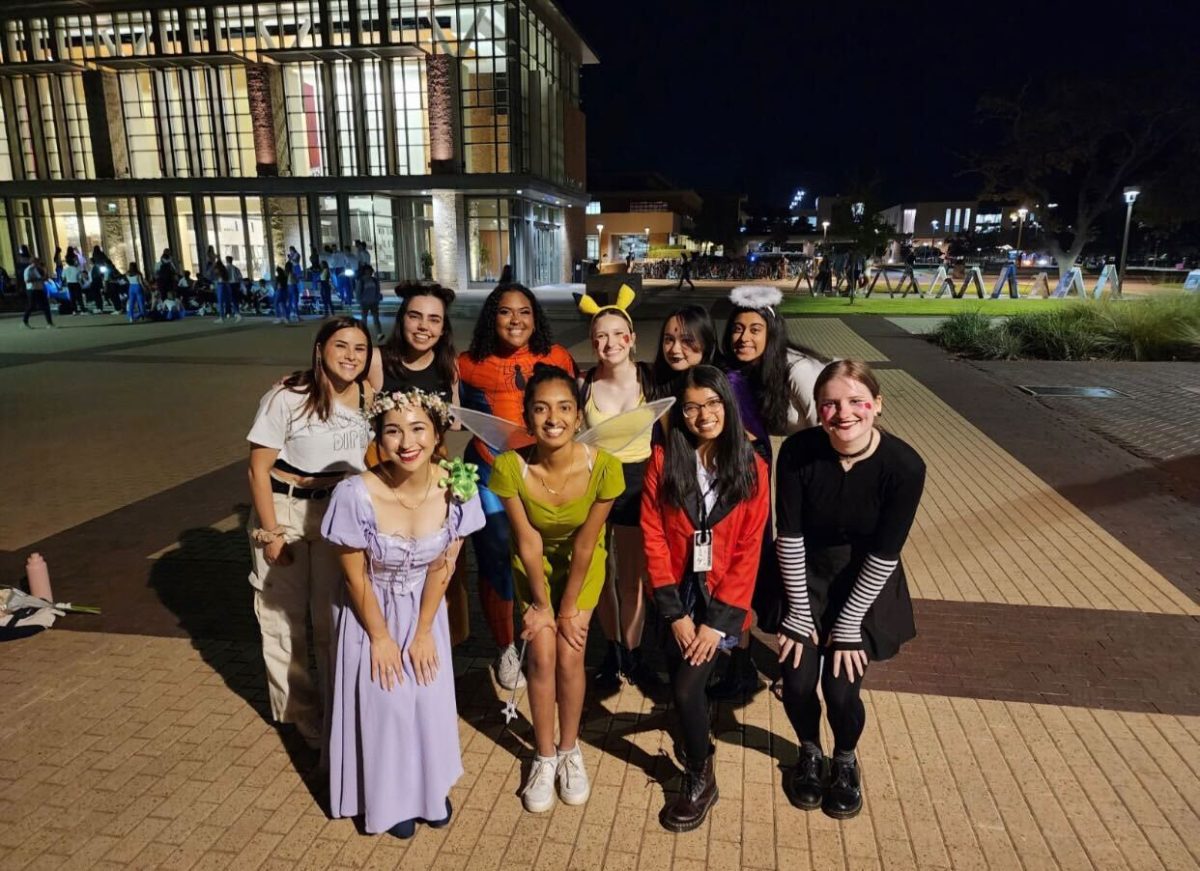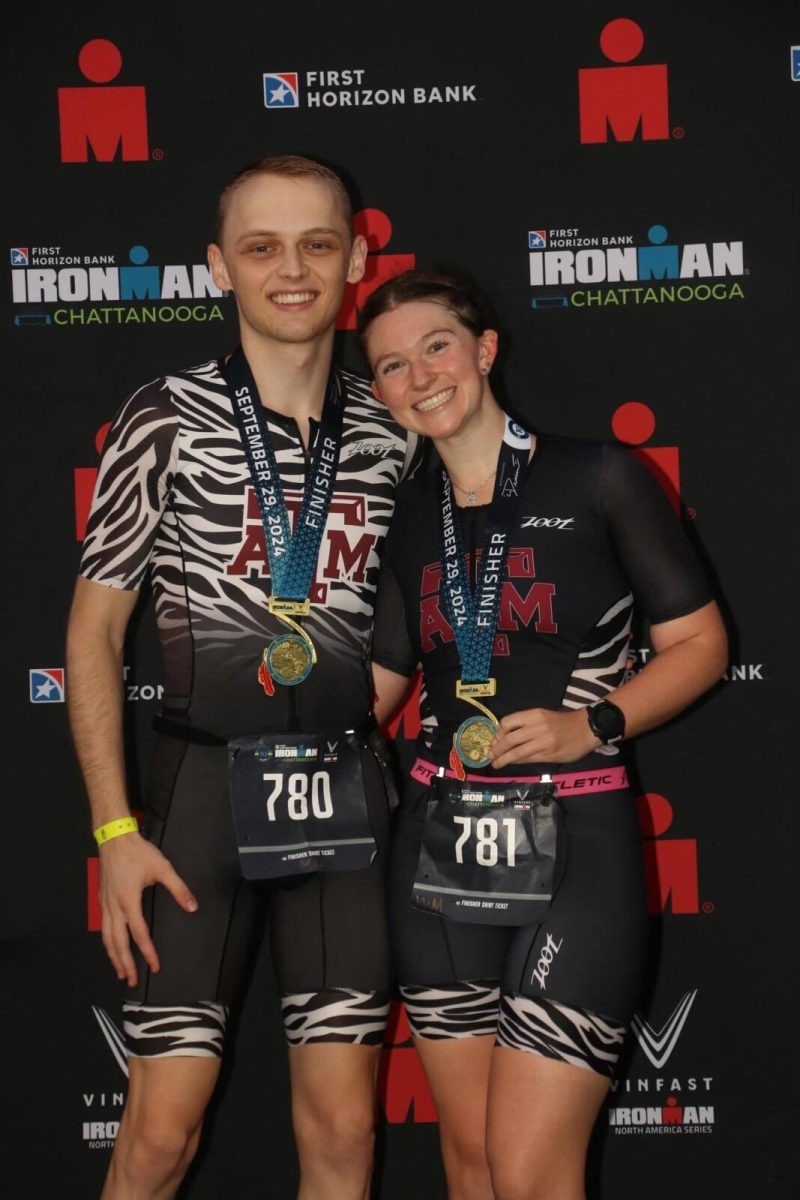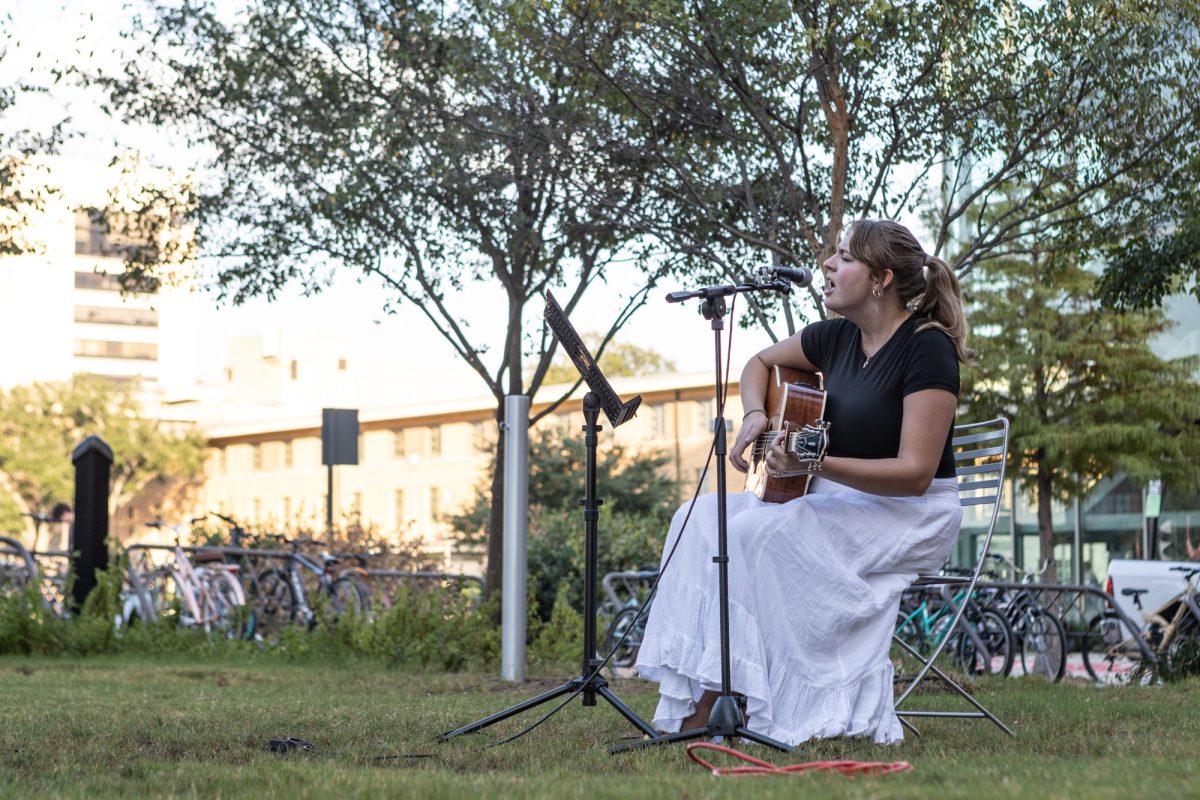The Department of Veterans Affairs might be heading in the direction of providing service dogs for veterans suffering from post-traumatic stress disorder — with the help of U.S. Marine veteran Cole Lyle and his service dog Kaya.
Lyle, political science senior, has been leading a self-funded crusade to pass a bill called the “Puppies Assisting Wounded Service Members”— or PAWS Act — in order to create a five-year, $10 million program for the VA to provide servicemen and women suffering from PTSD with a service dog. The bill was introduced on March 13 with U.S. Rep. Bill Flores as a co-sponsor.
“The VA does not provide service dogs that specifically treat and combat symptoms of post-traumatic stress,” Lyle said. “So in very simple terms, we’re trying to get the VA to provide dogs to do that. On average, there are 22 veterans a day committing suicide — that was concluded in a study done by the VA themselves back in 2013. But the study was based on 21 states, so the number is probably — tragically — much higher than that.”
According to the VA study, of the 147,763 suicides reported in the 21 states, 27,062 were identified as having a history in the U.S. military, making up 18.3 percent of suicides in the sample space.
“I’ve personally had friends of mine commit suicide as a result of post-traumatic stress exacerbated by opiate addictions, you know, prescriptions they get from the VA, sleep aids, anti-depressants — things like that,” Lyle said.
Afraid he would become another statistic, Lyle chose to seek alternative methods for combating his PTSD and bought Kaya, a then-10-week-old puppy. Lyle said he spent around $10,000 on her training.
“I just decided to quit the medication cold-turkey and seek alternative methods of treatment,” Lyle said. “I had a friend who had a service dog, and I knew it was an option because there are nonprofits that provide them to veterans for free. But on a nonprofit -based budget, and with the demand as high as it is, some veterans have to wait for over a year, and I feel like I didn’t have that amount of time.”
Since acquiring his German shepherd companion, Lyle said Kaya has provided the comfort he needs.
“[Kaya] is trained to tell when I’m having nightmares, so she’ll jump up in bed and wake me up, like lick my face,” Lyle said. “She’s also trained to sense certain stress patterns in my voice. So she’sees that I’m getting nervous or she senses I’m getting upset, depressed, angry, she’ll lick my hand and remind me to calm down, and it effectively stops that snowball effect of anger and depression before it gets too bad.”
Lyle compares Kaya to a form of transportation where someone is trying to get from point A to point B, with point B for him being recovery. Kaya is Lyle’s “lamborghini.” While he has the option to take the bus or walk to recovery with medication, he chooses Kaya. She gets him to point B faster and is a nicer way of getting there.
Kaya is protected by the Americans with Disabilities Act and is allowed to go anywhere a human can. While Kaya doesn’t go everywhere with him, Lyle said he enjoys taking her in public to spread his message and get people used to service dogs. So far Lyle said he has been to an Aggie football game, flown in a plane more than 20 times, climbed to the top of the Empire State Building and visited Congress in Washington D.C. with Kaya.
Amanda Hamrick, ocean engineering sophomore, is the public relations representative for the A&M chapter of Patriot PAWS, an organization that trains service dogs. She said the demand for service dogs in veteran health is increasing.
Starting with one puppy three years ago, Patriot PAWS now has 12 puppies in training to be donated to veterans. Thanks to a new kennel, the organization’s headquarters in Rockwall, Texas has grown from a maximum of 60 dogs to 85 dogs.
“I think there’s a really big need for it because the medical community is starting to see it as a resource, especially for people with PTSD, which is what we donate most of our dogs for,” Hamrick said. “It can cure a lot of things medicines can too, but if you don’t have to take a medicine and go to the doctor for that you can have someone with you all the time and that’s what the dogs are there for. I think people are starting to see it more as a resource than just a dog.”
Lyle said without Kaya, his recovery would have probably had a different outcome.
“I was in a pretty bad place before I got Kaya. I got out of the military and didn’t have a job, wasn’t in school at the time and I didn’t have a sense of purpose. When people lose purpose, they lose hope. It’s difficult to say if they can recover from that,” Lyle said. “I honestly couldn’t tell you where I’d be without Kaya . . . It’s very possible I’d be a statistic.”



